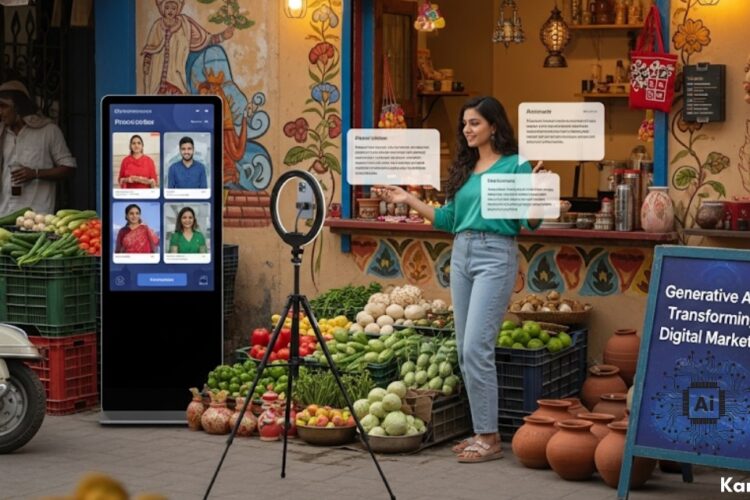
In a world where attention spans are shrinking and competition is intensifying, marketers are in constant pursuit of smarter, faster, and more creative ways to connect with their audience. Enter Generative AI—a breakthrough technology that’s not just automating tasks but reimagining what’s possible in digital marketing. From content creation to customer interaction, the game is shifting dramatically—and the rules are being rewritten.
The New Face of Creativity
Marketing has always relied on the power of storytelling. But now, thanks to AI-driven creativity tools, we’re seeing an explosion in content creation at a scale and speed once thought impossible. Whether it’s blog posts, social media captions, ad copy, product descriptions, or even video scripts, brands can now produce high-quality content in minutes.
The magic lies in how AI models learn and mimic human language, tone, and emotion. These tools don’t just regurgitate data—they generate fresh content that sounds like it was crafted by a skilled marketer. This allows teams to focus more on strategy and branding while AI takes care of the heavy lifting.
Hyper-Personalization at Scale
One of the most powerful benefits of AI in marketing is personalization. Traditional segmentation methods often grouped users into broad categories, missing the mark on true individual needs. Today, AI can analyze behavior patterns, past interactions, and even real-time activity to craft personalized messages for each user.
Imagine a fashion brand sending tailored product recommendations to thousands of users—all with different preferences—at once. These messages can change depending on the time of day, browsing behavior, or even weather patterns in a user’s location. This level of personalization builds stronger relationships and drives more conversions.
Smarter Customer Journeys
The customer journey is no longer linear. People bounce between devices, tabs, and channels. With so many touchpoints, it’s challenging to maintain consistency. AI bridges these gaps by providing data-driven insights and mapping out intelligent customer journeys. It helps marketers identify the best moments to engage, what type of content works, and how to reduce drop-offs.
Chatbots and virtual assistants, too, have come a long way. They’re now capable of handling complex conversations, resolving queries, and even upselling—without human intervention. The result is a 24/7 customer support system that never sleeps and never forgets.
A Shift in Strategy
What’s most fascinating is how Generative AI is influencing not just the execution but also the strategy behind digital marketing. Marketers are now using predictive analytics to forecast trends, audience responses, and campaign outcomes before launching. AI is making A/B testing obsolete in some cases by suggesting optimized versions even before anything goes live.
For instance, an e-commerce brand planning a festive sale can ask AI to simulate different ad creatives, user flows, and email sequences. Based on millions of data points, the system can highlight which version is likely to bring the highest ROI—saving time, money, and guesswork.
The Ethical Balancing Act
With great power comes great responsibility. As AI becomes more involved in shaping brand voices and influencing customer decisions, ethical questions are on the rise. Are customers always aware when they’re interacting with AI? Are brands transparent about using machine-generated content? These questions matter, and how marketers address them will define trust in the years to come.
Moreover, dependency on AI shouldn’t mean compromising originality or authenticity. Human oversight is still critical to ensure messages align with brand values and don’t feel robotic or out-of-touch.
What Lies Ahead
We’re only scratching the surface of what’s possible. As technology evolves, so will its applications in marketing. Voice-based content generation, real-time sentiment analysis, and adaptive advertising are just a few glimpses into the future.
Marketers who embrace this change—not as a threat, but as a tool—will lead the next wave of innovation. The brands that blend creativity with intelligence will be the ones that truly resonate.
Conclusion
Digital marketing is evolving at lightning speed, and tools that were once futuristic are now mainstream. Generative AI is not just enhancing the marketing process—it’s redefining it. By combining human ingenuity with machine precision, businesses can create more meaningful, impactful, and personalized experiences than ever before.
